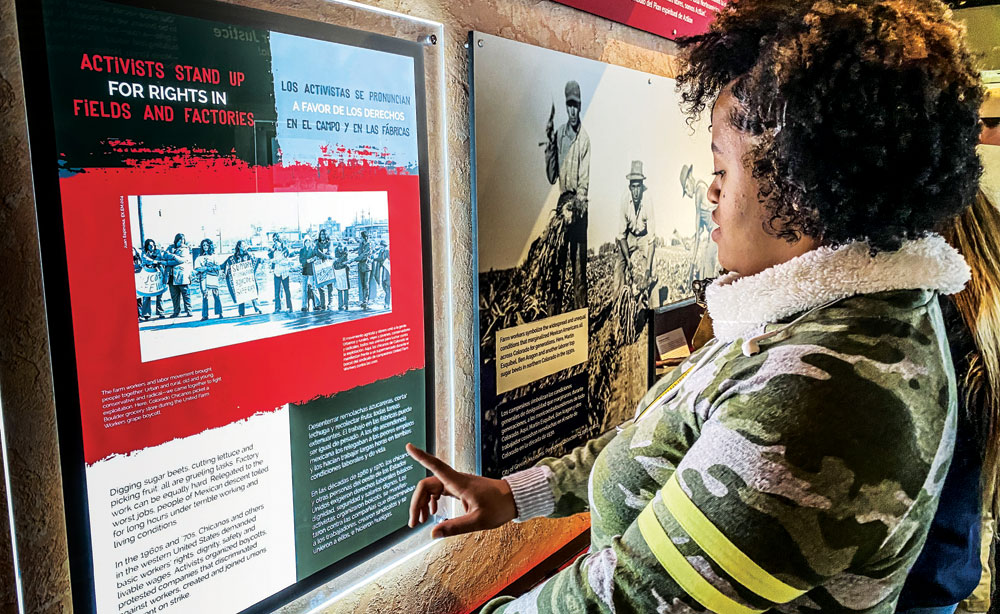
Northfield High School IB linguistics students visited History Colorado to examine how language empowers and disempowers. Senior Krystal Wortham considers the text of the museum’s interpretive program.
How can one exert power through language? And how does language empower some and disempower others?
“The other night while I was preparing for this (high school valedictory) speech. I asked myself… ‘What does America mean to you?’ I hesitated. I was not sure of my answer. I wondered if America still means and will mean freedom, equality, security, and justice when some of its citizens were segregated, discriminated against and treated so unfairly. I knew I was not the only American seeking an answer.” —Marion Konishi
Marion Konishi wrote these words in 1943, from the Amache internment camp in Granada, Colorado. On a field trip to History Colorado, Northfield High School (NHS) students read her speech in the Amache concentration camp exhibit room. Japanese-Americans—both Issei (Japanese-born) and Nisei (US-born)—were incarcerated at Camp Amache in Granada, CO from 1942-45 following President Franklin Delano Roosevelt’s Executive Order 9066.
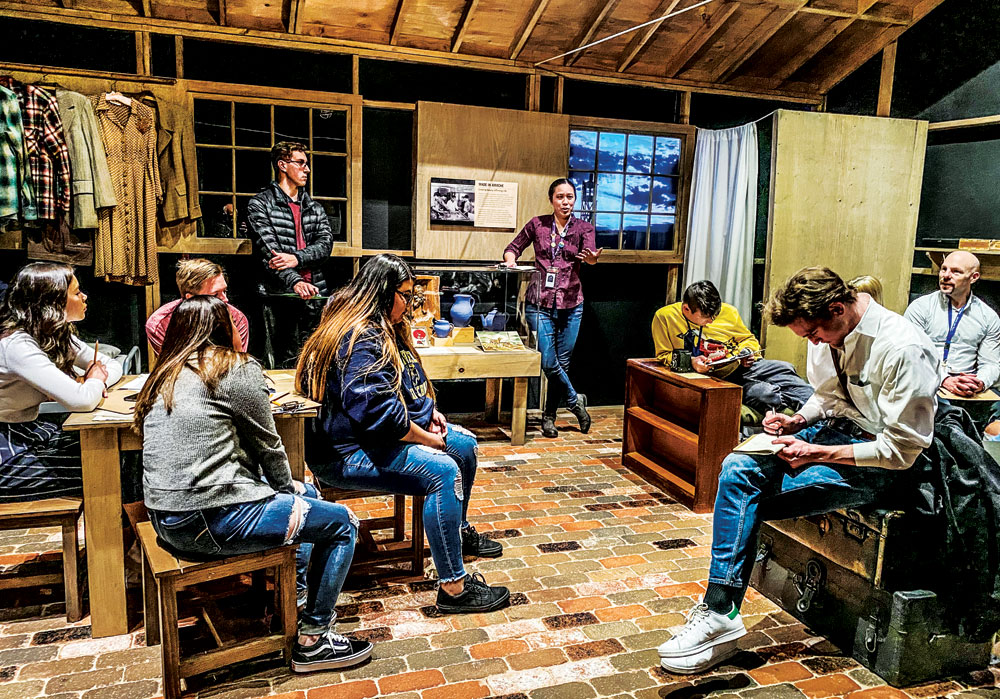
The NHS class studied how language and arguments can propel shifts in the power structure, both in progressive and reactionary ways.
NHS students studied how one can “exert power through language…and the relationship between language and realities,” says Dr. Greg Hessee, who teaches English at Northfield High School, and “how language empowers some and disempowers others.”
At the Amache exhibit, the museum’s Field Trip Manager, Dr. Josie Chang-Order said her goal was for the students “to be able to compare and contrast the propaganda language that the government was using at the time with what the Japanese and Japanese internees were actually saying.”
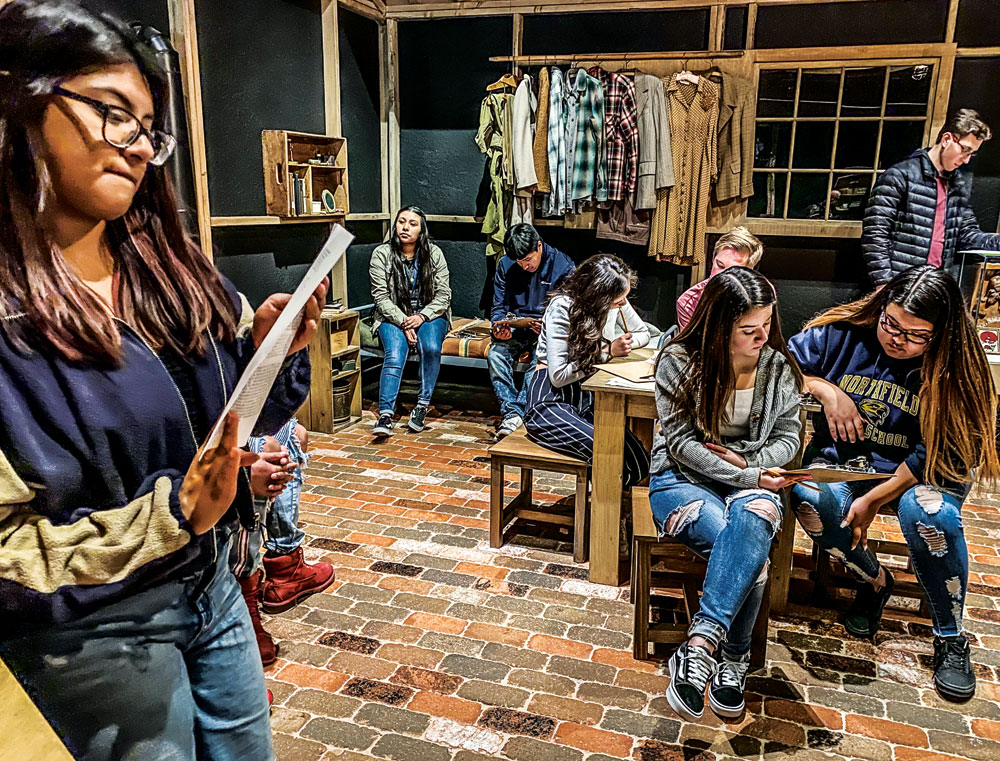
The class here sits within History Colorado’s recreation of a typical home in the Amache concentration camp in Granada, CO, where over 7,300 people of Japanese descent were held during World War II.
History Colorado’s online resources offer insights as to how the federal government’s language was euphemistic, using words like “evacuation” (which suggests a natural disaster) to describe the forced removal of an entire population based purely on national heritage. According to the Power of Words handbook: “To obscure the unconstitutional nature of these forced removals, the government referred to the Nisei victims as ‘non-aliens’ instead of ‘citizens,’” which might provoke public inquiries on the lack of due process. Another way language was used to obfuscate this history is that the sites were referred to as “internment camps,” which are, by definition, for enemy aliens.
Seniors Kate Dominguez and Tyler Imhof expressed surprise at this dark episode in our nation’s history and found reading the Amache high school valedictorian’s speech especially relatable. “Some of that language really does hit home and you feel…the exact kind of feeling, especially in a political climate like today,” says Imhof. “She wrote a very honest and genuine speech that you could see delivered in front of you…a lot of the words are very similar [to today].”
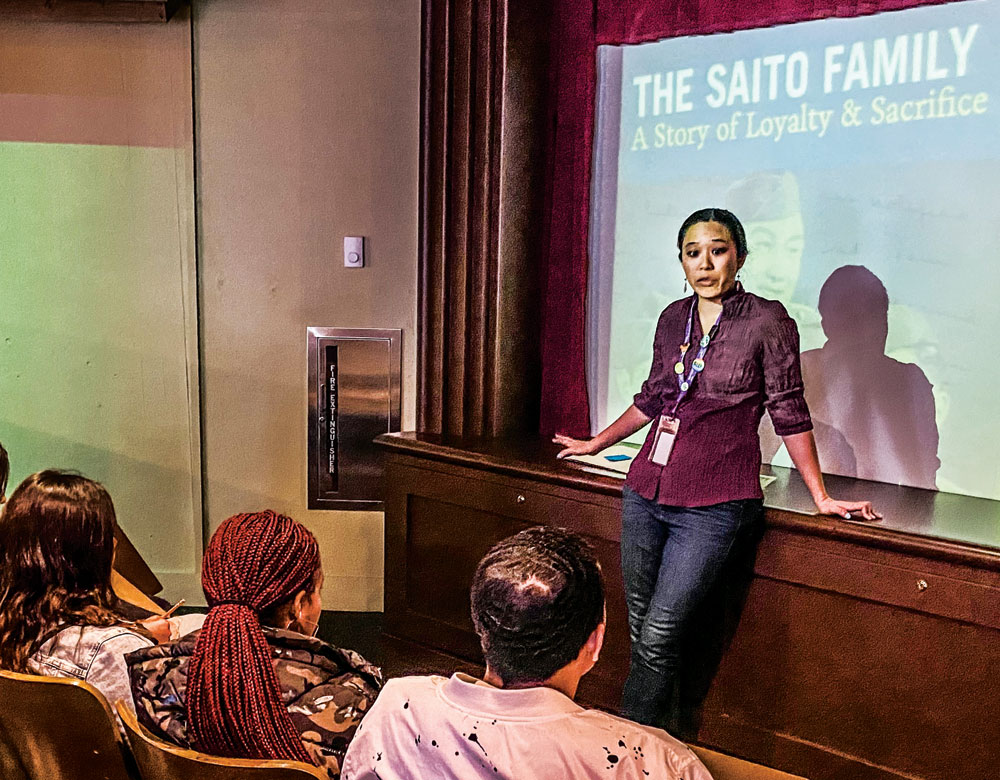
History Colorado Field Trip Manager Dr. Josie Chang-Order (right) explains to NHS students how our government rounded up Japanese-Americans during WWII and put them in concentration camps, one of which was located in Colorado.
For Dominguez, whose first language is Spanish and whose parents are immigrants, the experience was deeply personal. Reflecting on recent headlines and the history of incarceration at Amache, she says, “I think I see progress—and I don’t, but it’s sad and it sucks…I do feel like we’re not moving forward. And those camps get to me because that could have been my family.”
Other History Colorado exhibits offered students the opportunity to reflect on language associated with social movements, says Chang-Order. “We have a lot of protest movement posters dating back to the 1800s…so I was trying to have them really look at like where do you see powerful word choices, where do you see appeals to emotion versus logic?…I also had them look at the notion of ‘we versus they’ in exhibit language.”
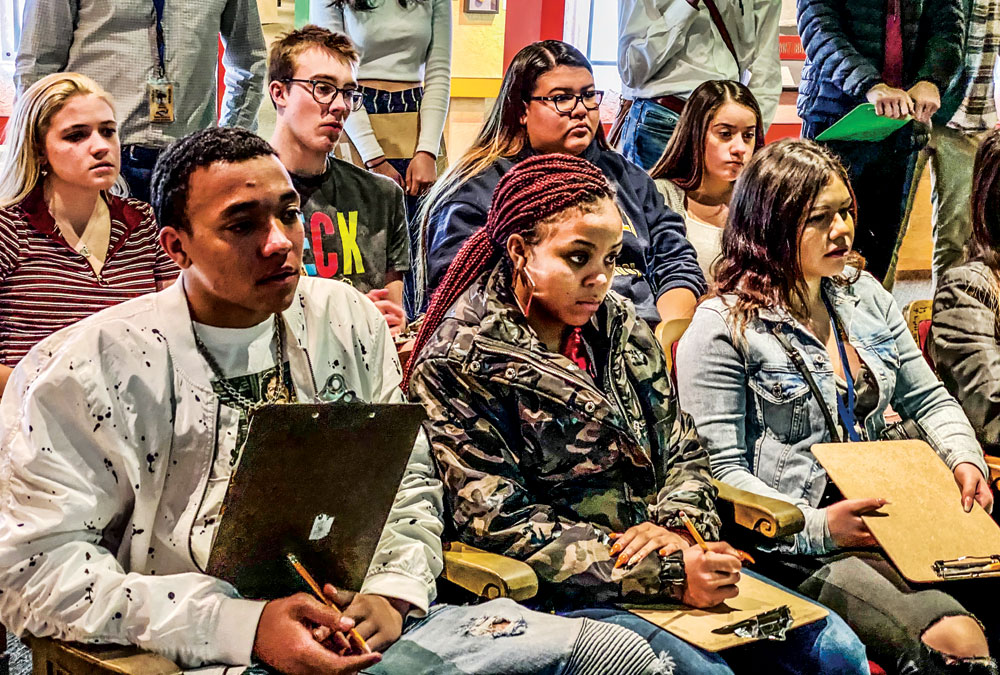
NHS students listen to History Colorado Field Trip Manager Dr. Josie Chang-Order explain how our government rounded up Japanese-Americans during WWII and put them in concentration camps, one of which was located in Colorado.
Before visiting the museum, students read Richard Wright’s 1935 poem, “Between the World and Me,” James Baldwin’s 1962, “A Letter to My Nephew,” and selections from Ta-Nehisi Coates’ 2015 best-seller, Between the World and Me. Those readings helped students gain an understanding of how each text built on the previous author’s use of language that indicts our nation for its commitment to white supremacy over its commitment to equity. “It kind of touched me to see someone who is of my background be able to express themselves and be recognized for it,” says senior Krystal Wortham. “Breaking down their language and meanings kind of helped me understand what I think of it and my own personal opinions…so it does give you a voice or help you to find your voice.”
Marion Konishi concluded the country had made many mistakes, but had acted to correct them. She’d been taught in her history classes that the country gave citizenship to the Indians after “hounding and harassing them;” the Emancipation Proclamation had freed the enslaved “Negroes”; the country repented for its “persecution” of German Americans during WWI, “recalling that America was born of those who came from every nation seeking liberty and justice.”
Konishi’s speech ends with an affirmation of the future. Even as she and her family remained indefinitely imprisoned she says: “I was just as much embittered as any other evacuee….I had also found my faith in America. Faith in the America that is still alive in the hearts, minds, and consciences of true Americans today.”
For information about guided field trips, contact Dr. Chang-Order at: josie.chang-order@state.co.us or call 303-866-3345. Learn more about Amache and view an upbeat newsreel describing the process of relocation at: http://exhibits.historycolorado.org/amache/amache_home.html



0 Comments